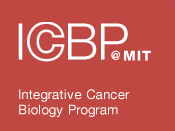| Title | Impaired SHP2-mediated extracellular signal-regulated kinase activation contributes to gefitinib sensitivity of lung cancer cells with epidermal growth factor receptor-activating mutations. |
| Publication Type | Journal Article |
| Year of Publication | 2010 |
| Authors | Lazzara, MJ, Lane, K, Chan, R, Jasper, PJ, Yaffe, MB, Sorger, PK, Jacks, T, Neel, BG, Lauffenburger, DA |
| Journal | Cancer Res |
| Volume | 70 |
| Issue | 9 |
| Pagination | 3843-50 |
| Date Published | 2010 May 1 |
| ISSN | 1538-7445 |
| Keywords | Animals, Antineoplastic Agents, Butadienes, Carcinoma, Non-Small-Cell Lung, Enzyme Activation, Enzyme Inhibitors, Extracellular Signal-Regulated MAP Kinases, HeLa Cells, Humans, Lung Neoplasms, Mice, Mutation, Nitriles, Phosphorylation, Protein Tyrosine Phosphatase, Non-Receptor Type 11, Quinazolines, Receptor, Epidermal Growth Factor |
| Abstract | Most non-small cell lung cancers (NSCLC) display elevated expression of epidermal growth factor receptor (EGFR), but response to EGFR kinase inhibitors is predominantly limited to NSCLC harboring EGFR-activating mutations. These mutations are associated with increased activity of survival pathways, including phosphatidylinositol 3-kinase/AKT and signal transducer and activator of transcription 3/5. We report that EGFR-activating mutations also surprisingly lead to decreased ability to activate extracellular signal-regulated kinase (ERK) compared with wild-type EGFR. In NSCLC cells and mouse embryonic fibroblasts expressing mutant EGFR, this effect on ERK correlates with decreased EGFR internalization and reduced phosphorylation of SHP2, a tyrosine phosphatase required for the full activation of ERK. We further show that ERK activation levels affect cellular response to gefitinib. NSCLC cells with EGFR mutation display reduced gefitinib sensitivity when ERK activation is augmented by expression of constitutively active mutants of mitogen-activated protein kinase/ERK kinase (MEK). Conversely, in a NSCLC cell line expressing wild-type EGFR, gefitinib treatment along with or following MEK inhibition increases death response compared with treatment with gefitinib alone. Our results show that EGFR-activating mutations may promote some survival pathways but simultaneously impair others. This multivariate alteration of the network governing cellular response to gefitinib, which we term "oncogene imbalance," portends a potentially broader ability to treat gefitinib-resistant NSCLC. |
| DOI | 10.1158/0008-5472.CAN-09-3421 |
| Alternate Journal | Cancer Res. |
| PubMed ID | 20406974 |
| PubMed Central ID | PMC2862125 |
| Grant List | P30-CA14051 / CA / NCI NIH HHS / United States U54 CA112967-05 / CA / NCI NIH HHS / United States U54-CA112967 / CA / NCI NIH HHS / United States / / Howard Hughes Medical Institute / United States |
